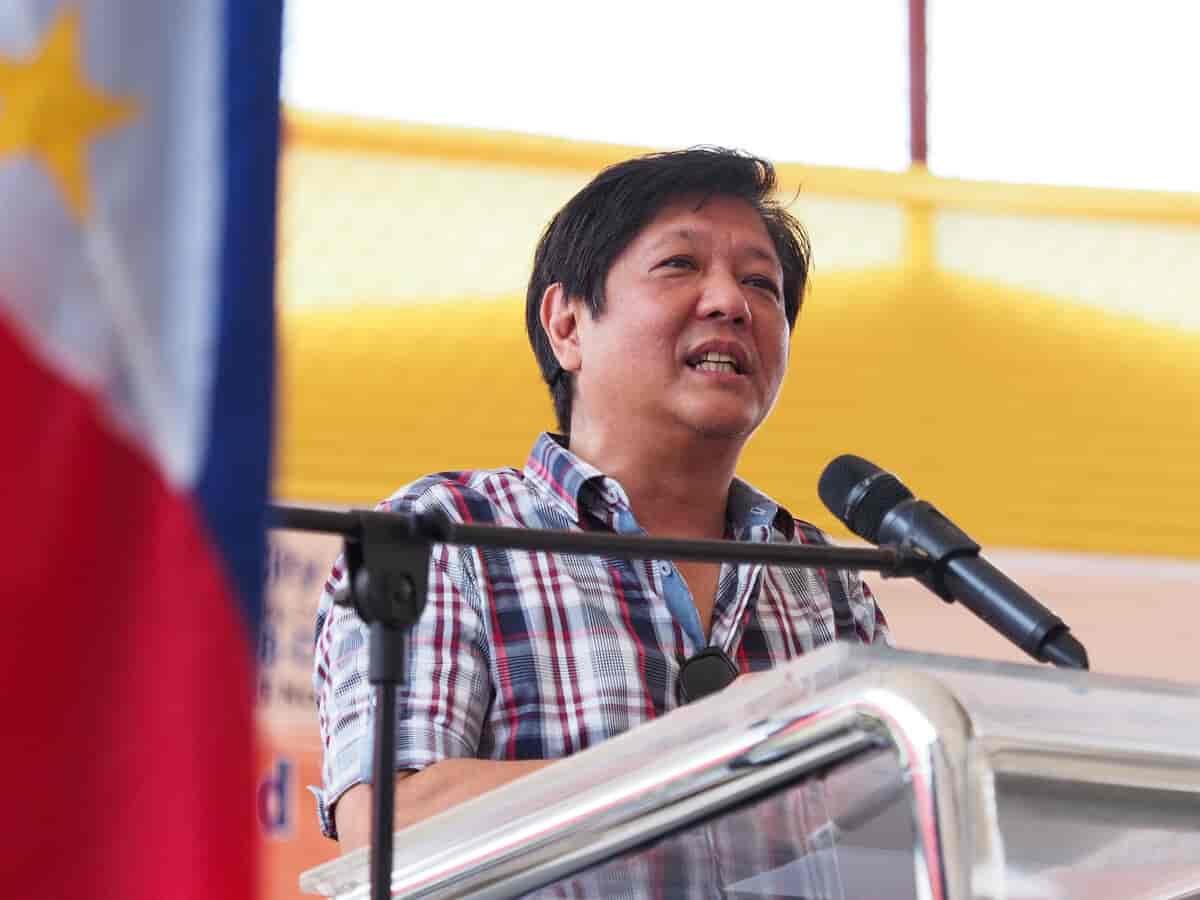Filipino Radio Host Killed Outside His Home
President of the Philippines Ferdinand Marcos Jr. delivering a speech to the media. (Store norske leksikon)
Filipino radio host Percival Mabasa, known by listeners as Percy Lapid, was killed outside his home in Las Piñas City the evening of October 4. At approximately 8:30pm, two unknown assailants shot Masaba in his car and then fled the scene on motorcycles.
In his program “Lapid Fire,” Mabasa was renowned for his highly critical reporting on President Ferdinand Marcos Jr. and former President Rodrigo Duterte’s administrations. In his broadcasts, Mabasa reported on topics such as the dangers of red tagging, a process in which government critics–including journalists– are labeled as communists, and the Philippines’s history with Martial Law. He was well-known for his direct and spirited criticism of the government.
Mabasa is the second journalist to be killed in the Philippines this year, as well as the second journalist killed during Marcos Jr.’s presidency, stoking long-held concerns about press freedom in the Philippines. In September, radio broadcaster Renato “Rey” Blanco was stabbed to death in central Philippines. Blanco had also been critical of the government in his broadcasts. Mabasa is also the 197th journalist killed since 1986, when a pro-democracy revolution ended the dictatorship of President Ferdinand Marcos, father to current President Marcos Jr.
The Philippines ranks 147 out of 180 countries by Reporters Without Borders in terms of press freedom. Despite guarantees of press freedom enshrined in the nation’s 1987 constitution, Filipino journalists still face difficulties in reporting freely. Defamation laws put their work at risk and during the six-year presidency of Duterte, at least 22 journalists were killed in the Philippines according to Human Rights Watch. Duterte also ordered the online news website Rappler to cease operations and did not renew the broadcasting franchise of the TV station ABS-CBN. Because television and radio are the two most popular news mediums in the Philippines, this action drastically limited the population’s access to independent journalism. ABS-CBN has since moved online, and Rappler continues to operate as it appeals the order to close.
Mabasa’s murder has also worried journalists because of its proximity to Manila. Killings had generally occurred in rural provinces, giving journalists in the capital city a feeling of security. Now, Manila-based journalists will likely feel uneasy and potentially be coaxed into silence or self-censorship.
Following Mabasa’s murder, the National Union of Journalists in the Philippines (NUJP) issued a statement in which they claimed that the “brazen” attack against journalists demonstrates how independent journalism is in danger in the Philippines and that the government is unable to protect journalists. Although the Marcos Jr. administration has promised to investigate the killing, Filipino journalists are not optimistic about the government’s promises and believe little will change.

